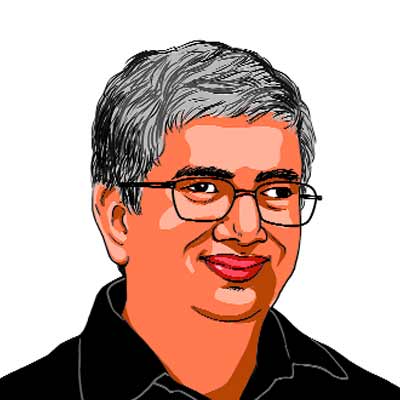Opinion An interrogative pause
The Question Hour in Lok Sabha was adjourned early on Monday on account of the absence of MPs whose questions were to be answered.
The Question Hour in Lok Sabha was adjourned early on Monday on account of the absence of MPs whose questions were to be answered. Three out of twenty questions listed were answered in the first 26 minutes,and the remaining 34 minutes remained unutilised.
The first hour of each day of Parliament is Question Hour,a period is used by MPs to ask questions to ministers. In the Indian context,it is important to note that MPs do not represent their parties during this Question Hour: there is no whip,the anti-defection law does not apply,and they are expected to raise issues that reflect the concerns of their constituents as well as that of the larger public.
The history of asking questions in the parliamentary system goes back to 1721,when Earl Cowper in the House of Lords asked the government whether the chief cashier of the South Sea Company had fled the country and had been arrested in Brussels. Subsequently,British MPs started asking questions in order to bring pressure to bear on the government,and a formal Question Time was adopted in 1869. Many parliamentary democracies have adopted variants of this system.
There is significant difference in the structure of Question Hour across countries. In India,an MP has to submit questions at least 10 days in advance. He has to indicate whether the question is starred or unstarred. Starred questions are answered orally; supplementary questions may also be asked,which too the minister has to answer orally. Unstarred questions receive written replies. Starred questions that are not answered (usually due to lack of time) also receive written replies. On Monday,written replies were tabled to the 17 questions that were not answered in the house. The UK follows a similar system,with two significant differences. Ministries may refuse to answer questions if the cost to do so is higher than a threshold amount (currently 750 pounds). Second,the prime minister answers questions,without notice,for half-an-hour every Wednesday. The system in Australia is designed to keep ministers on their toes. All ministers are expected to be present in the House,and MPs may ask questions to any of them. They do not have advance intimation about the questions.
Though ministers know the questions in advance,MPs can ask supplementary questions without prior notice. These supplementaries provide an effective tool for parliament to examine the competence of ministers. Often,our parliamentarians do not utilise this opportunity to hold the government to account. Being the first hour of the day,this period is frequently disrupted when MPs are agitated over some issue. During the last three years,about 45 per cent of Question Hour was lost to interruptions. Only about one-sixth of all starred questions were answered orally. Indeed,this issue was raised by Vice President Hamid Ansari at the whips conference in February 2008 when he asked,Is not disruption of proceedings during the Question Hour a breach of privilege of individual members who await answers to admitted starred questions,and supplementary questions?
The issue again arose in Rajya Sabha on February 27,2008,as seven MPs stated that their questions could not be answered orally as some other MPs did not allow the House to run. The matter was referred to the Privileges Committee which submitted its report in July 2009. The committee concluded that bringing such matters strictly under the purview of parliamentary privileges would not be an optimal solution to the problem as the intention of the Members complained against was not to prevent any other Member from speaking or from raising a particular issue or question the authority of the Chair,rather it was to express their discontent over the manner in which,they thought,they were being ignored. It however urged MPs to be more circumspect and respect the rules of the House and abide by the directions of the Chair so that such incidents do not recur in future.
Mondays event was a rare one. The House did not run short of time it ran short of MPs whose questions were listed. It may be useful for Parliament to amend its rules to require ministers to answer even such questions. Then other MPs may raise supplementaries. This process would help retain Parliaments role of keeping a check on the work of the government.
Speaker Somnath Chatterjee summed up the issue on a similar occasion in April 2007. On finding that 22 MPs who had starred questions were absent he said, Are we not inviting some critical comments from the people of India? We hope that our MPs fulfill the important duty of keeping the government accountable.
The writer works with PRS Legislative Research,New Delhi
express@expressindia.com





